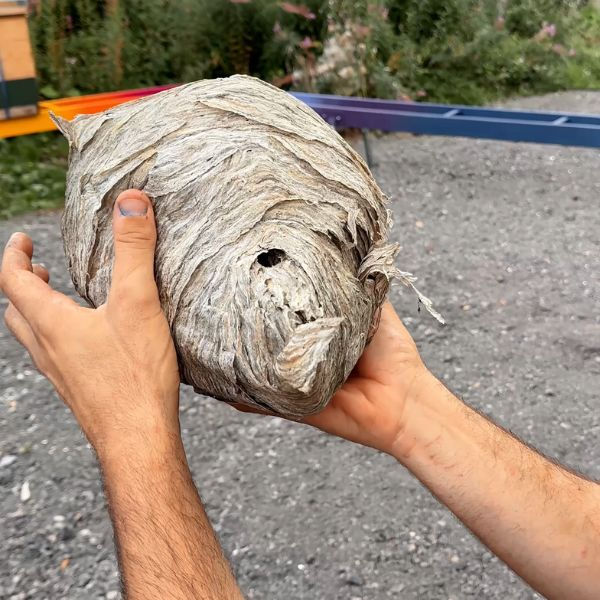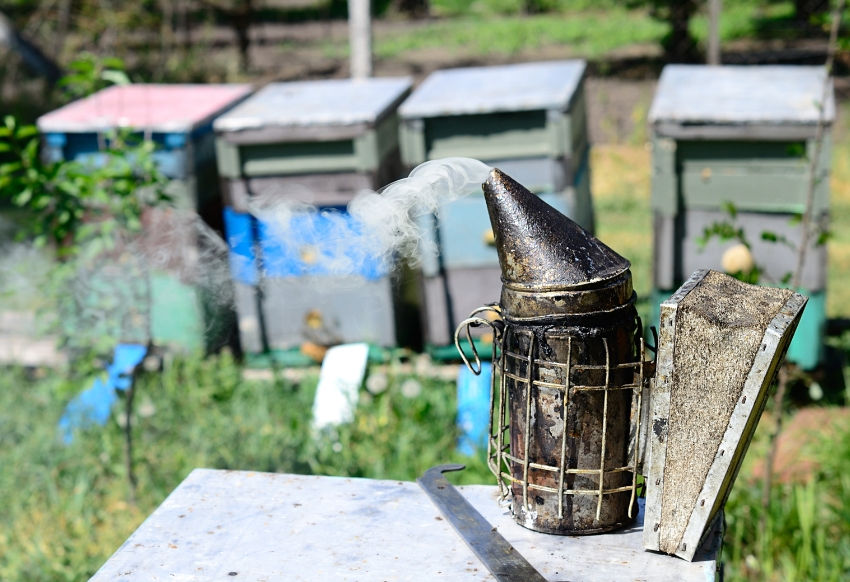Adam's Apiaries: What Equipment Do You Need When Going To Check Your Bees?
- Adam Goodall

- Mar 12, 2024
- 6 min read

What Equipment Do You Need When Going To Check Your Bees? From bee suits to hive tools, find out what you need when going to check your bees.
I guess I'm the same as many other beekeepers, I have a fairly settled pattern to my weekly rounds when it comes to checking my apiaries. It normally starts with the click of the kettle! So with my flask in hand I'm out of the door and on the road. It's normally about 10 minutes into the drive when my brain starts asking the questions "you did pick up the queen excluders didn't you?" Now being one of those men who can walk into a room to pick up my keys and then completely forget why I walked into the room, I normally spend the rest of the drive questioning if they are in the back of the van.
Having started my beekeeping with a hive at home, life was easy if you forgot something, you just walked back to the shed and got it, but as soon as you have out apiaries there is nothing more frustrating than realising you have forgotten either a tool or a hive component.
What equipment that you really need?
With so many options of equipment and tools on the market when starting out it is easy to buy things that you probably wont use. I have got my fair share! But there are a few things that you will need when Inspecting your bees. Here's a list of equipment you should consider making sure you have:
Bee Suit: A full bee suit, there are so many of these on the market to choose from, don't get a cheep one, if your just starting out you can soon be put off by continually being stung! BMH is a huge lover of the BB ultra suit, If I added up what I had spent on all the suits I have had, I could have one by now, currently I Have a Old Castle Hive Farms Sentinal suit for this year, as the suit I had was a little snug around the waist! (Lets just say middle age has gifted me with some winter stores that stay year round) But if your looking at new suits here is the link:
Footwear:
For me a good pair of wellies does the job, but you want something that will give you support. These can get a little warm in the middle of summer so do wear a slip on boot, just make sure you don't have a gap!
Gloves:
My glove of choice is the good old Marigold. The genuine ones are the best, slightly thicker with a better fit.

Smoker: A smoker helps calm the bees by masking alarm pheromones. It's an essential tool for opening the hive and conducting inspections. This is a must have tool! I always carry 2 with me, there are many stories of these getting run over! Don't forget some fuel for your smoker, take a quick read of a previous blog talking about the choices of fuel you can use.
Hive Tool: This tool is used to pry apart hive components, such as frames and boxes, and to scrape off propolis or beeswax. A simple J type tool is all you need to get going. I carry 2 of these, even though I was taught that it was never to leave my hand during an inspection, its not hard to drop it in the long grass and not be able to find it.
Bee Brush:
A soft-bristled bee brush allows you to gently move bees away from frames and hive components during inspections. Not my tool of choice through the risk of spreading disease, a good shake normally does the job! But if you only have one or two hives at home then I guess the risk is low.
Notebook and Pen:
Take notes during inspections to track the hive's health, behaviour and any interventions you make. Keeping records is important, not only so you can look back but so you know what equipment you need going forward. See the link below for a printable record sheet from BBKA BBKA Hive keeping record system | British Beekeepers Association
First Aid Kit:
Always have a basic first aid kit on hand in case of injuries. Not wanting to be mister health and safety here, but a simple First aid kit in the car is all you need for that one occasion you need it. What I will say is a box of Piriton in the glove box can be a real friend to you at times.
Water Bottle:
Staying hydrated is important, especially if you're working outdoors on a hot day. On a hot day while working on the apiary in your suit, you need to keep hydrated. As yet I haven't got down to a 5 min inspection, so I can be in the suit for a while, taking plenty of fluids in is important.
Blow Torch:
Lighting the smoker can be made a lot easier with a blow torch! It doesn't need to be a top end one, mine was from Screwfix and works a treat.
Feeder:
I don't really mind what type of feeder that you have, just make sure you have one, when you need one, you need it! With the UK weather being about as reliable as it's rail network, things can change so quick. A strong colony can go through its stores so fast if they cant get out to forage. Even if you plan to make your own in for the winter feed, just get one can of invert syrup so its there the day you need it.

That just about covers the equipment that you need when you first start, most of which can be purchased from the major suppliers as a "beginners package'', but remember that is what you need to do an inspection, not what you will need to manage your colony as the season goes forward.
All of the above I have packed in 2 bee boxes, one is quite simply a large storage box that I can place in the van each week before I head out. Along with this I have my inspection kit box. This is a small box that is easy to carry and has many of the other handy tools you may require in it.

With my memory the hardest thing to remember is all the extra equipment that I need at each site. This is where making notes comes in handy! From Queen excluders to a spare nuc, just in case you need to make a split there and then. At times of the season there can be a lot that is needed. Last year I only had a few hives at each apiary and there was enough to remember then. With the wheels in motion to increase this year I really need to be on the ball with my equipment and make sure that it is ready to go.
As you progress there are a few other things that you will need/come in handy. Queen marker pens for example, not only to indicate the age of the queen, having her marked makes it a lot easier to see her during inspections, you don't always need to see the queen on inspection, but it is nice to know where she is when putting the hive back together! I have recently ordered a box of pens following a recommendation from BMH, so I will let you know later in the year how I get on with them.
Following up on queen markers a press in queen cage or a one handed queen catcher makes marking queens easier, I need to gain more confidence in handling queens with my sausage fingers, I do worry about doing damage to her. All my queen equipment, I try my best to keep in a small Tupperware box so I know where it is when it is needed.

The BBKA healthy hive guide is another item that can be found in my kit box, being a novice I have no shame in admitting if I don't know the answer. So for £7 this handy little guide is good to have to hand.
For those of you that have far more experience than myself, please leave a comment if you think that I have missed of anything that you think I should have mentioned.














Adam, Like it.
Personally hate J-Tools with National frames at least, they are very good at snapping off the lugs on frames.
Drawing pins. Very useful things, have a box of them in your kit box. I use them to mark position on frames such as queen cells, pin things to the hive (mouse guards in particular)
For out Apiaries in particular I like to have a spare, empty, super on top of the hives, can store a multitude of useful things. Paper notes if you keep them, spare smoker fuel, a rapid feeder, marker pens, spare gloves, even a spare hive tool. I have "out apiaries" that are secure enough that the Hives getting nabbed is probably low, b…